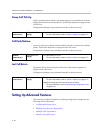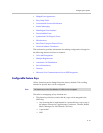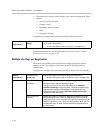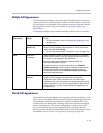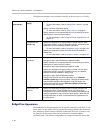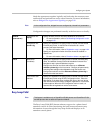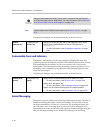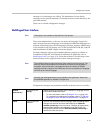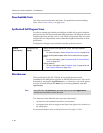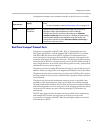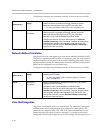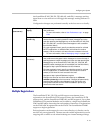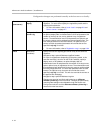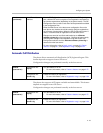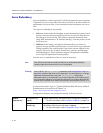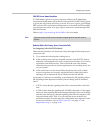
Administrator’s Guide SoundPoint IP / SoundStation IP
4 - 28
Downloadable Fonts
New fonts can be loaded onto the phone. For guidelines on downloading
fonts, refer to Fonts <font/> on page A-60.
Synthesized Call Progress Tones
In order to emulate the familiar and efficient audible call progress feedback
generated by the PSTN and traditional PBX equipment, call progress tones are
synthesized during the life cycle of a call. These call progress tones are easily
configurable for compatibility with worldwide telephony standards or local
preferences.
Configuration changes can performed centrally at the boot server:
Microbrowser
The SoundPoint IP 430, 501, 550, 600, 601, and 650 phones and the
SoundStation IP 4000 phone supports an XHTML Microbrowser. This can be
launched by pressing the Applications key, or if there isn’t one on the phone,
it can be accessed through the Menu key by selecting Features, and then
Applications.
Two instances of the Microbrowser may run concurrently:
• An instance with standard interactive user interface
• An instance that does not support user input, but appears in a window on
the idle display
For more information, refer to the Microbrowser Developers’s Guide.
Central
(boot server)
Configuration file:
sip.cfg
Specify the basic tone frequencies, levels, and basic repetitive
cadences.
• For more information, refer to Chord-Sets <chord/> on page A-26.
Specify downloaded sampled audio files for advanced call progress
tones.
• For more information, refer to Sampled Audio for Sound Effects
<saf/> on page A-27.
Specify patterns.
• For more information, refer to Patterns <pat/> on page A-29 and
Call Progress Patterns on page A-30.
Note
As of SIP 2.2.0, the Services key and menu entry are renamed Applications,
however the functionality remains the same.



